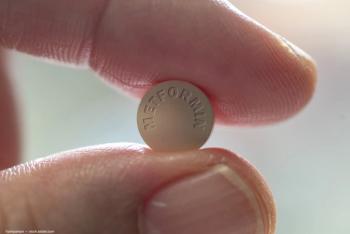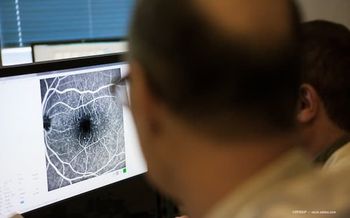
Ocugen’s OCU410ST receives Rare Pediatric Disease Designation for the treatment of ABCA4-associated retinopathies
ABCA4-associated retinopathies include Stargardt disease, retinitis pigmentosa 19, and cone-rod dystrophy 3.
The US Food and Drug Administration (FDA) has granted Rare Pediatric Disease Designation (RPDD) to Ocugen’s OCU410ST for the treatment of ABCA4-associated retinopathies, including Stargardt disease, retinitis pigmentosa 19, and cone-rod dystrophy 3.1
Previously, OCU410ST received Orphan Drug designations for the treatment of ABCA4-associated retinopathies from the FDA and European Medicines Agency.
OCU410ST utilizes an AAV delivery platform for the retinal delivery of the RORA (RAR-Related Orphan Receptor A) gene. RORA regulates pathophysiological pathways linked to Stargardt disease, such as lipofuscin formation, oxidative stress, complement formation, inflammation, and cell survival networks.1
Shankar Musunuri, PhD, MBA, chairman, CEO, and co-founder of Ocugen, commented on the designation in a press release from the company, saying, “This latest designation for OCU410ST reaffirms the urgency of providing a therapeutic option to Stargardt patients who have no FDA-approved treatment available.”
With this designation for OCU410ST, Ocugen may be awarded a Priority Review Voucher (PRV) if the PRV program is reauthorized by the US Congress. If awarded, a PRV can be redeemed to receive priority review for a different product or sold to another sponsor and typically sells for about $100 million or more.
Priority Review Voucher
- The program shortened the FDA review period, cutting the review time from the standard 10 months to 6 months.
- PRV Program awarded 53 vouchers across 39 different rare pediatric diseases.
- 350 additional Rare Pediatric Disease (RPD) designations granted between 2020 and 2022.
- AbbVie paid $350 million for a PRV from United Therapeutics in 2015, which was used for Rinvoq.
The PRV program was signed into law in 2012 but has since expired, and the FDA began sunsetting the program as of December 20, 2024. The FDA stated it will not award any new vouchers unless the drug held the rare pediatric disease designation prior to the sunset date. The FDA can award vouchers until 2026 for those eligible if the PSV program is not reauthorized by Congress by then.2
Criticism of the program claimed it primarily benefited large pharmaceutical companies rather than driving innovation for rare diseases, and the system was being exploited for financial gain rather than serving its original purpose.3,4
While support for the program lies in the belief that it is critical for incentivizing innovation in rare pediatric diseases, they are particularly complex to research because conducting clinical trials with children is “challenging." 3,4
Ocugen noted it plans to initiate a Phase 2/3 pivotal confirmatory trial in the coming weeks and plans to submit a Biologics License Application (BLA) in 2027.
References:
Ocugen announces rare pediatric disease designation granted for OCU410ST—modifier gene therapy for the treatment of Stargardt Disease. Published May 27, 2025. Accessed May 27, 2025.
https://www.globenewswire.com/news-release/2025/05/27/3088484/0/en/Ocugen-Announces-Rare-Pediatric-Disease-Designation-Granted-for-OCU410ST-Modifier-Gene-Therapy-for-the-Treatment-of-Stargardt-Disease.html Rare pediatric disease designation and priority review voucher programs. US FDA. Updated September 27, 2024. Accessed May 27, 2025.
https://www.fda.gov/industry/medical-products-rare-diseases-and-conditions/rare-pediatric-disease-designation-and-priority-review-voucher-programs#2024update The end of the FDA’s rare pediatric disease priority review voucher program. Propharma. Published March 11, 2025. Accessed May 27, 2025.
https://www.propharmagroup.com/thought-leadership/fda-rare-pediatric-disease-priority-review-voucher-prv-program/ Rare Disease Biotechs Left in a Lurch as Congress Fails To Renew Priority Review Program. BioSpace. Published March 5, 2025. Accessed May 27, 2025.
https://www.biospace.com/business/rare-disease-biotechs-left-in-a-lurch-as-congress-fails-to-renew-priority-review-program
Newsletter
Keep your retina practice on the forefront—subscribe for expert analysis and emerging trends in retinal disease management.




























